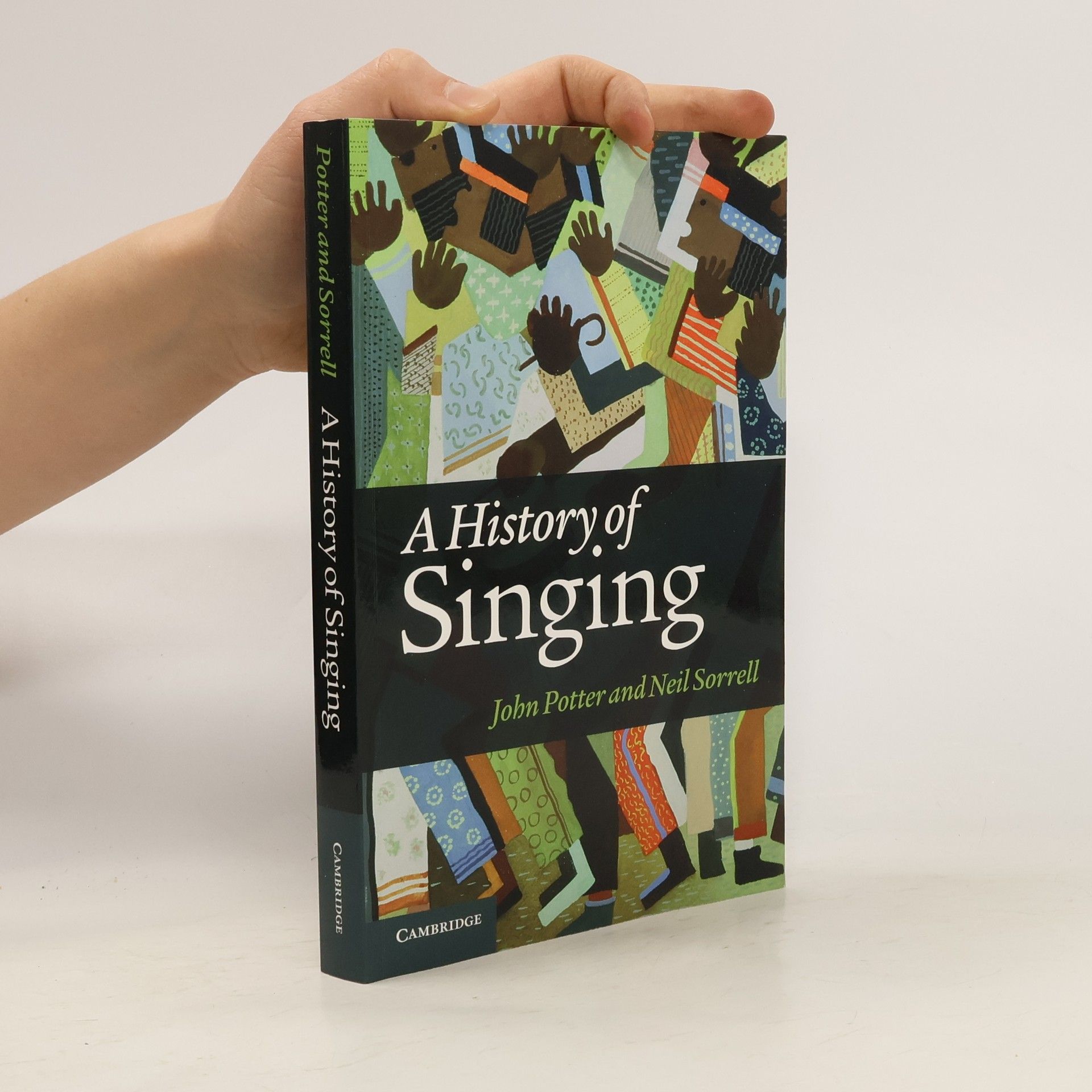From one of our most innovative singers, a vibrant history of song stretching from Hildegard von Bingen and Benjamin Britten to Bjoerk
John Potter Book order (chronological)
This author publishes under a name shared by multiple individuals. Consequently, this profile encompasses works from different authors with the same name. Due to this situation, a unified summary of the author's style or themes cannot be provided.






The book addresses the alarming prevalence of suicide, highlighting it as a leading cause of death that surpasses fatalities from wars and natural disasters combined. It explores the societal stigma, cultural barriers, and theological misconceptions that contribute to the silence surrounding this critical issue. By shedding light on these factors, the book aims to foster open discussions and understanding about suicide, encouraging a more compassionate and informed approach to a topic often shrouded in taboo.
The Uses of Media Literacy
- 154 pages
- 6 hours of reading
Focusing on media literacy, this book reinterprets Richard Hoggart's classic work by exploring its relevance in today's context. It delves into the diverse applications of media literacy, highlighting the tensions that arise and their implications for individuals and communities. Additionally, it examines how these dynamics relate to contemporary social class structures, offering insights into the evolving landscape of media consumption and its impact on society.
Relax Baby Be Cool
- 304 pages
- 11 hours of reading
Ginsburg, Gainsbourg, or Gainsbarre? Maestro, miscreant, or just misunderstood? Relax Baby Be Cool seeks to deconstruct the myth of France s finest musical export while marvelling at the magical music.
Dlaczego śpiewamy i co po raz pierwszy skłoniło ludzi pierwotnych do śpiewu? Jak taki śpiew mógł brzmieć i jak wiele z takiego pierwotnego stylu mogło przetrwać do dnia dzisiejszego? Książka Historia śpiewu zada te oraz wiele innych pytań, badając śpiew jako zjawisko historyczne i międzykulturowe. Prześledzi ona ewolucję śpiewu w kontekście globalnym od człowieka neandertalskiego po Auto-Tune poprzez nieskończone odmiany muzyki światowej od Wschodu do Zachodu, muzykę klasyczną od średniowiecza aż po awangardę, a także muzykę popularną od wodewilu aż po rock i nie tylko. Rozpatrując śpiew jako uniwersalną działalność ludzką, książka ukazuje w szerokiej perspektywie śpiew wielu kultur i okresów: zachodnich i nie-zachodnich, od prehistorycznych do współczesnych. Historia śpiewu, napisana żywym i dowcipnym językiem, zawiera również obszerną bazę odnośników dla tych, którzy chcą mocniej zgłębić poszczególne tematy i przypadnie do gustu międzynarodowemu gronu czytelników śpiewaków, studentów i naukowców.
An indispensable reference for beginner and experienced coin collectors alike, with detailed examples and 350+ illustrations to help you identify rare and valuable coins in your pocket change. In the authors' own words, this new edition of Strike It Rich with Pocket Change, dispels the myths of error coins and assists you in discovering, marketing, and researching rare coins that you can find in your pocket change. More than 350 close-up illustrations, key identifying details and current market values help you decipher the difference between proper and error issues and varying types of coins. In addition, this unique must-have how-to also includes: • Coverage of Lincoln Memorial Cents, Roosevelt Dimes, Washington Quarters, John F. Kennedy Half Dollars, State Quarters • Expert insight and advice about tools of the trade, preserving coins, buying and selling error-variety coins • Terms and definitions associated with error coins Whether it's a Jefferson Presidential dollar missing edge lettering, that's worth $2,000 - $10,000 plus or a Lincoln cent with trail marks that make it an error worth $1 - $3 there are hidden treasures to be found in your pocket change, if you know what to look for.
Afghanistan was an American crusade to win the war against the “Evil Soviet Empire” and remake the world in its own image. This goes right to the heart of understanding the destiny of the Western Dream. Instead of a dream the US is caught in a nightmare. Now Americans long for a spiritual regeneration away from the vision of war as an honorable sacrifice to a vision of peace that serves all. No one seems able to make the process move in the right direction. We assimilated a profound understanding over four decades of how to envision moving from war to peace that is now in our novelized memoir, The Three Nights of Desmond at the Kabul Hotel.
A Child Of The Sacred Heart - A Biography is an unchanged, high-quality reprint of the original edition of 1868. Hansebooks is editor of the literature on different topic areas such as research and science, travel and expeditions, cooking and nutrition, medicine, and other genres. As a publisher we focus on the preservation of historical literature. Many works of historical writers and scientists are available today as antiques only. Hansebooks newly publishes these books and contributes to the preservation of literature which has become rare and historical knowledge for the future.
European Rail Timetable Summer 2015
- 672 pages
- 24 hours of reading
This guide provides up-to-date timetables for rail services throughout Europe with details of facilities, a list of recommended scenic routes and essential information on each country.
A History of Singing
- 358 pages
- 13 hours of reading
Why do we sing and what first drove early humans to sing? How might they have sung and how might those styles have survived to the present day? This history addresses these questions and many more, examining singing as a historical and cross-cultural phenomenon. It explores the evolution of singing in a global context - from Neanderthal Man to Auto-tune via the infinite varieties of world music from Orient to Occident, classical music from medieval music to the avant-garde and popular music from vaudeville to rock and beyond. Considering singing as a universal human activity, the book provides an in-depth perspective on singing from many cultures and periods: western and non-western, prehistoric to present. Written in a lively and entertaining style, the history contains a comprehensive reference section for those who wish to explore the topic further and will appeal to an international readership of singers, students and scholars.
